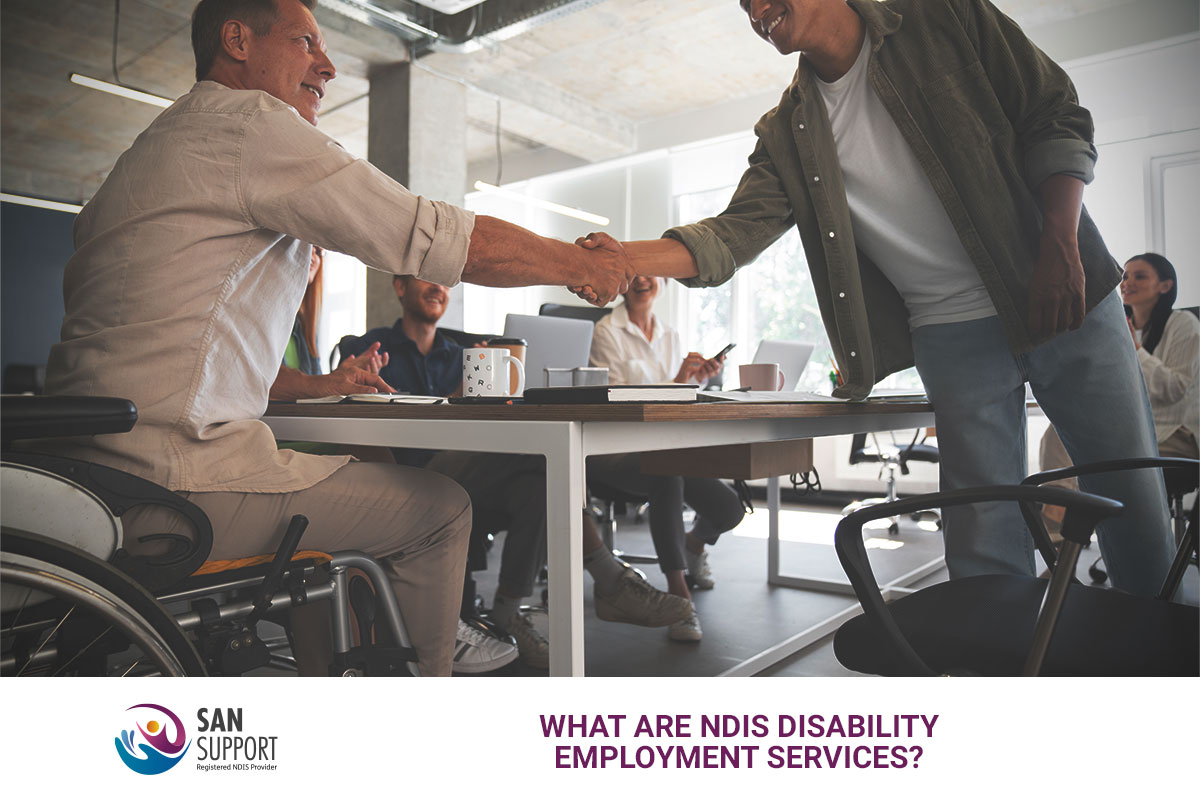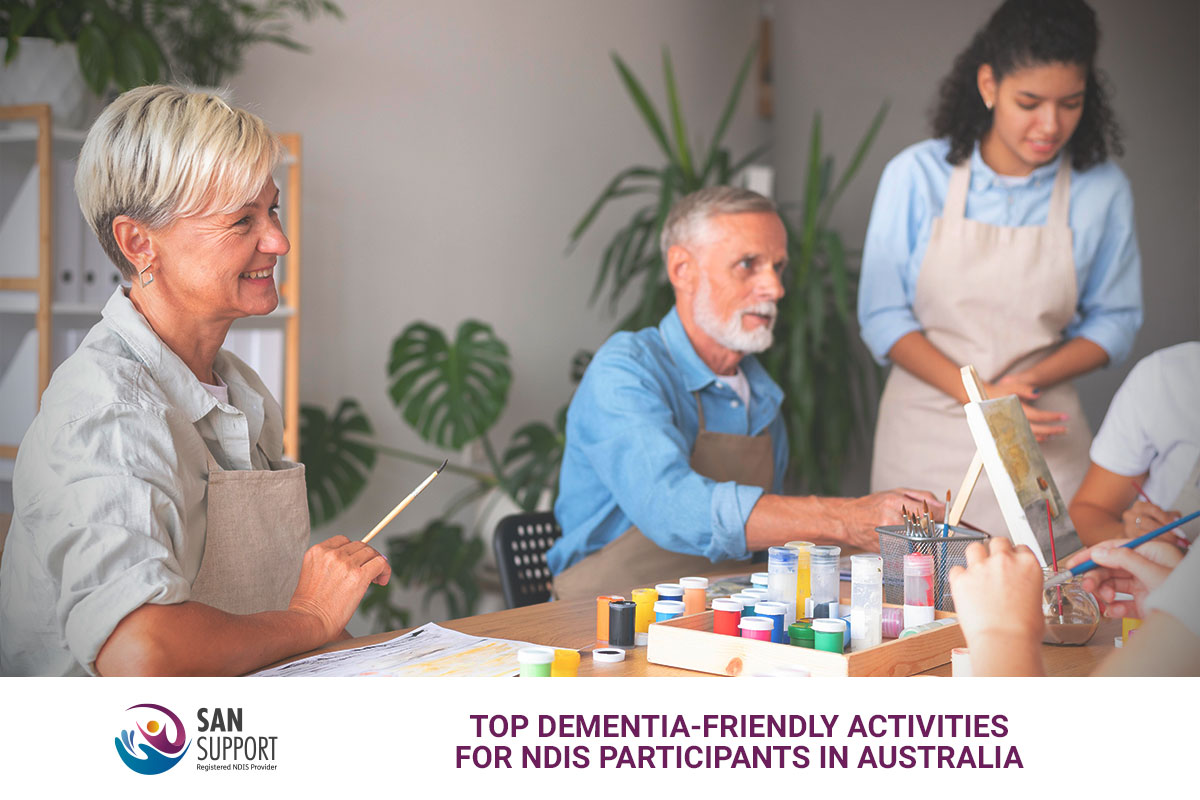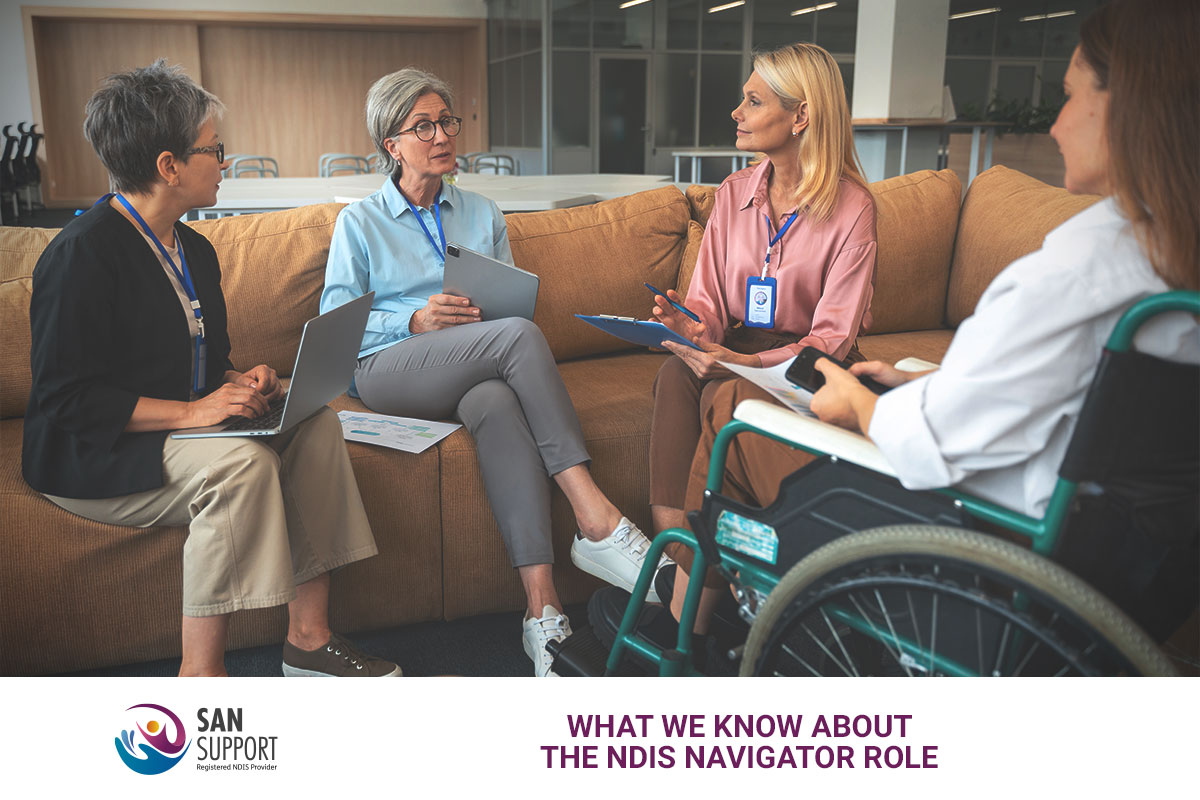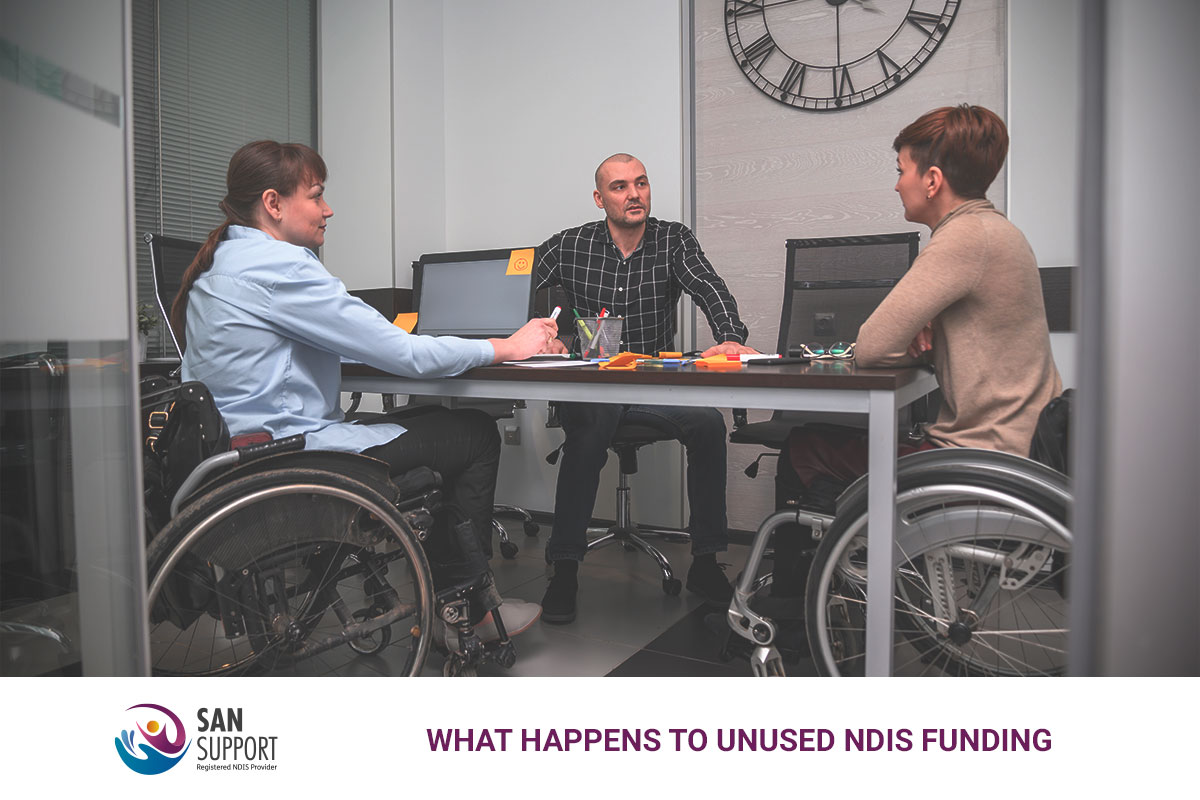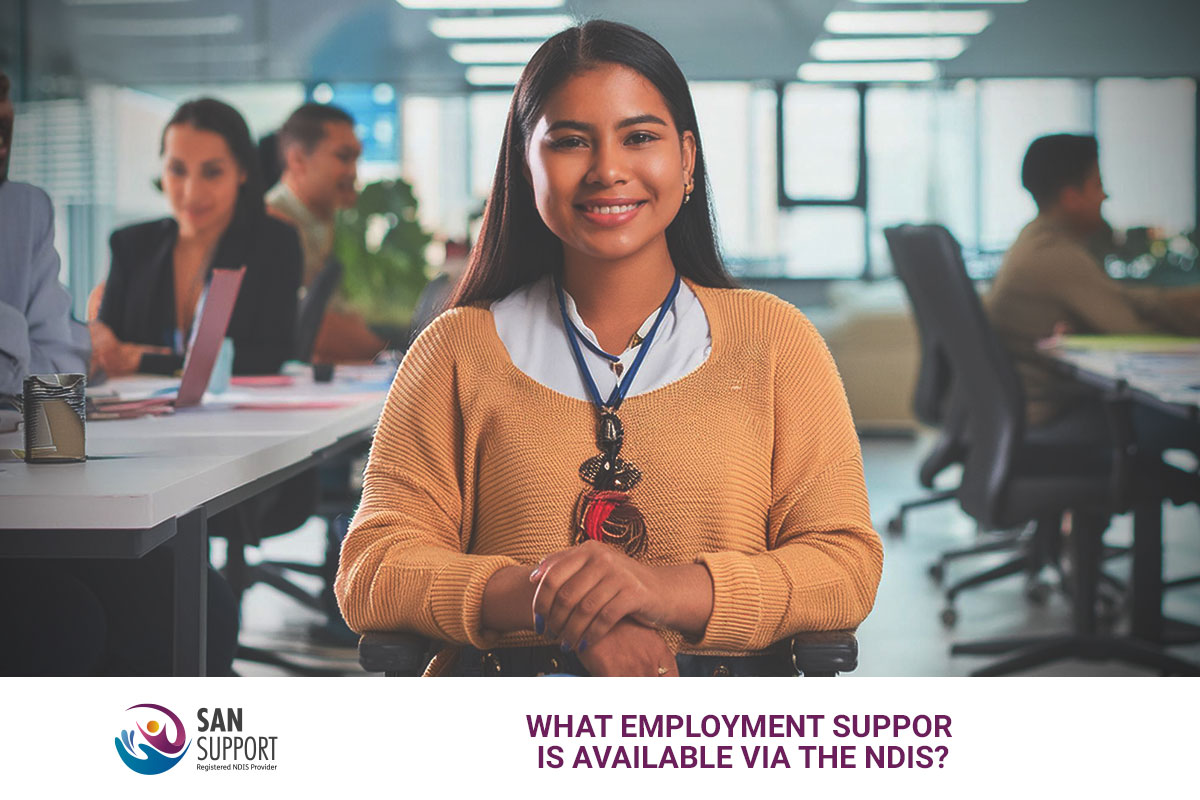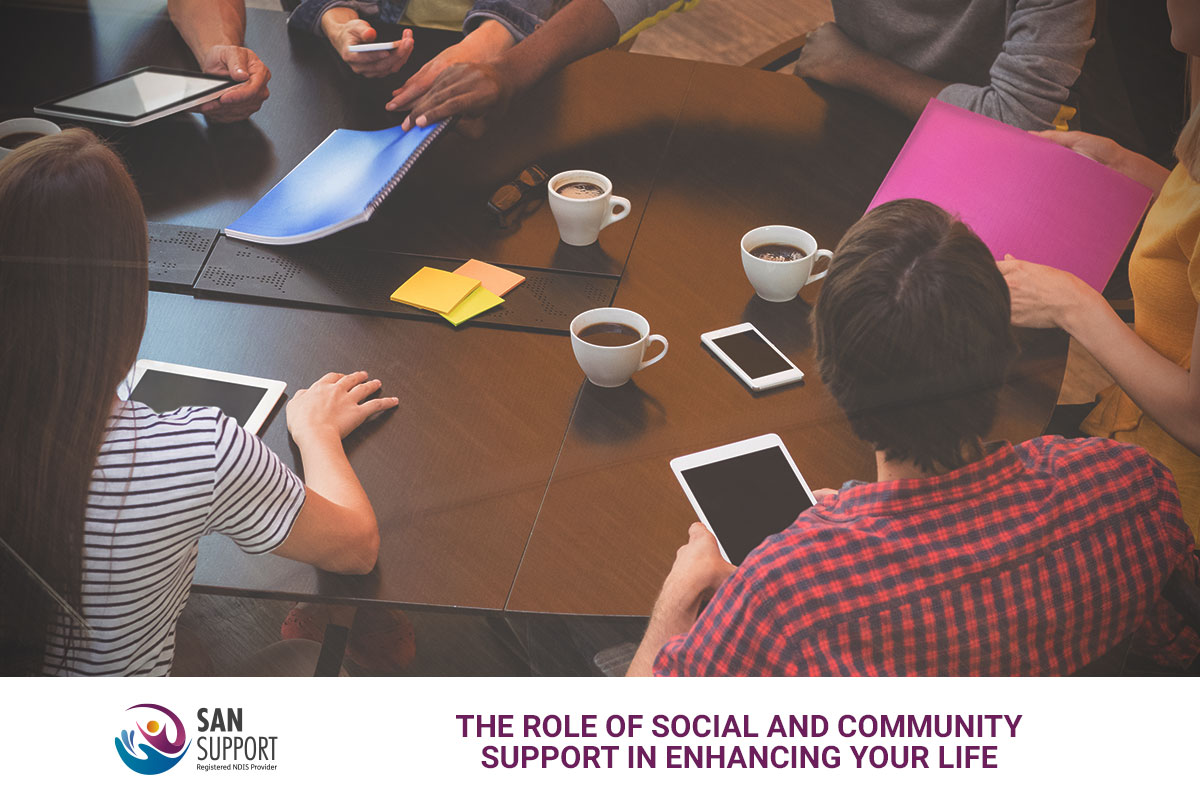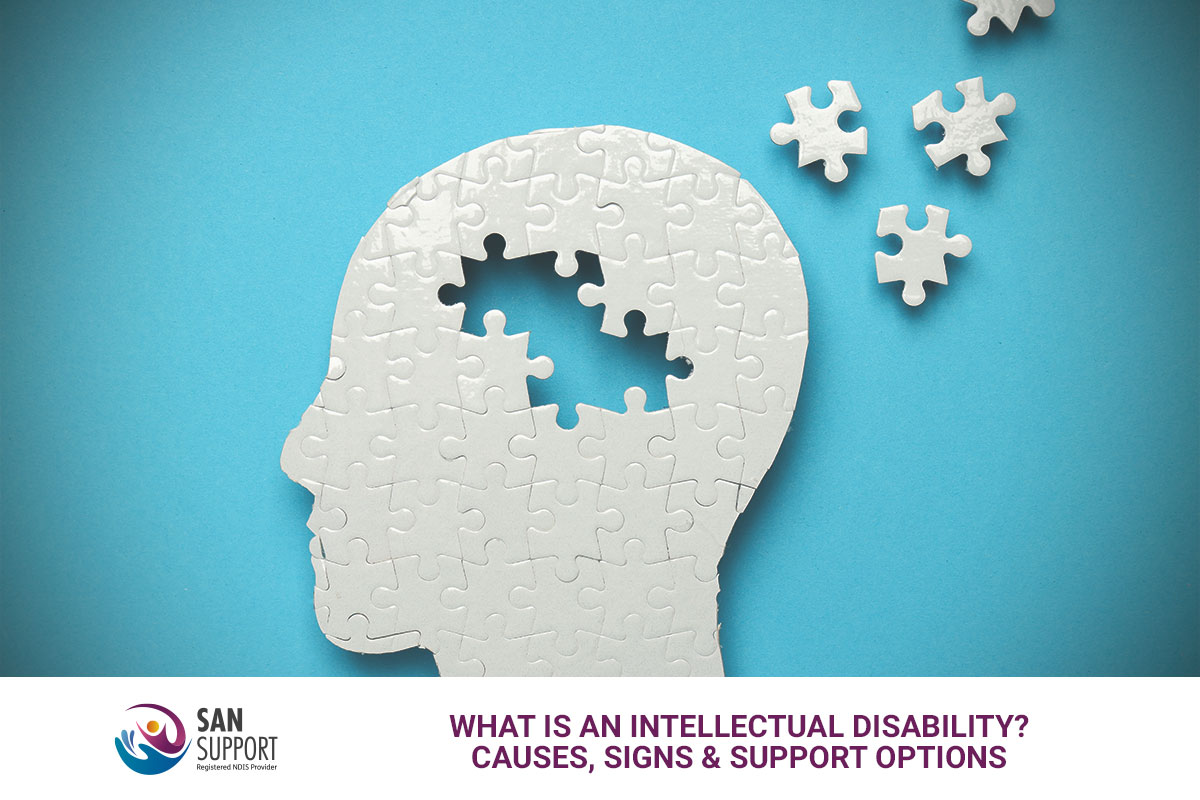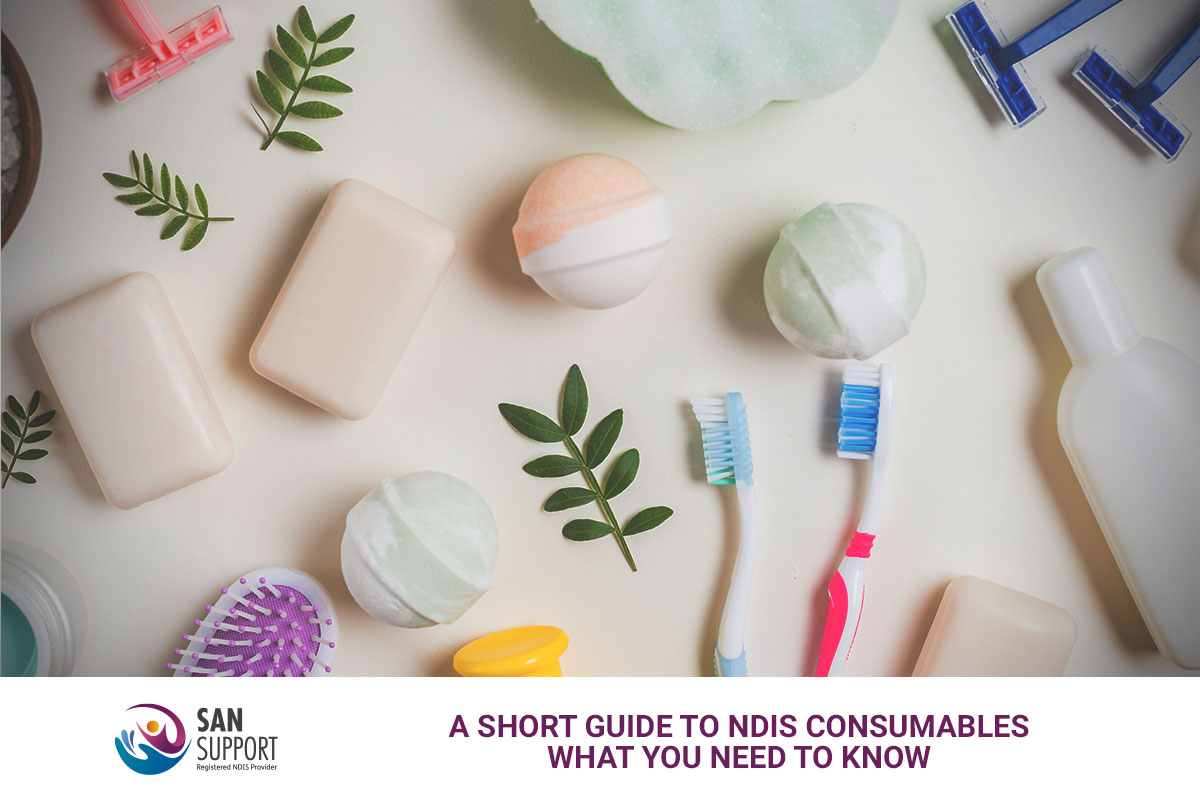What Are NDIS Disability Employment Services?
NDIS Disability Employment Services empower people with disability across Australia to find and keep meaningful jobs. From job coaching to workplace support, learn how SAN Support helps participants achieve their employment goals and build independence through inclusive job opportunities.
Top Dementia-Friendly Activities for NDIS Participants in Australia
Positive Behaviour Support (PBS) improves dementia care by addressing the root causes of challenging behaviours. This approach enhances quality of life through personalised strategies like life story work and sensory support.
MND Global Day: Supporting Living with Motor Neurone Disease
Every 21 June, MND Global Day raises awareness for Australians living with Motor Neurone Disease. Learn how early diagnosis, inclusive disability support and NDIS funding can empower individuals and families facing MND. Join SAN Support in building understanding and delivering compassionate care that truly makes a difference.
The Importance of Goal Setting for NDIS Participants
Setting clear goals is a powerful part of every NDIS journey. This guide explores the importance of personalised goal setting, common goal types and how to create SMART goals that lead to real progress in daily living, health, employment and more.
What We Know About the NDIS Navigator Role
The NDIS is set for a major shift with the introduction of Navigators a new support role designed to simplify how people with disability access services. Unlike current roles tied to NDIS plans, Navigators will offer personalised, ongoing assistance to anyone with disability. This article explores what Navigators do, how they differ from Support Coordinators and what this change means for participants, families and service providers.
What Happens to Unused NDIS Funding? A Guide for Participants
Unused NDIS funding? It happens more than you would think! With nearly one in four NDIS dollars going unspent across Australia, it is time to change the game. Whether it’s confusion about your plan, trouble finding the right supports, or just life getting in the way this guide breaks it all down.
What Employment Support Is Available via the NDIS?
Finding meaningful employment is key to independence and career growth. The NDIS offers employment supports like job training, workplace adjustments, career coaching and on-the-job assistance. Learn how to access funding for NDIS workplace supports, transition from school to work and develop skills for long-term employment success.
The Role of Social and Community Support in Enhancing Your Life
Social and community participation is essential for well-being, confidence and independence. This guide explores how the NDIS funds social supports, including community programs, skill development, transport assistance, and recreational activities. Discover how staying socially engaged helps reduce isolation, improve mental health and open new opportunities for education, employment and friendships.
What is an Intellectual Disability? Causes, Signs and Support
What is an intellectual disability? Understand its causes, early signs and how NDIS funding supports daily living, education and employment. Find the best resources to empower individuals with disabilities.
A Short Guide to NDIS Consumables: What You Need to Know
Looking to make the most of your NDIS Consumables budget? This guide covers everything you need to know – from NDIS-approved consumables like personal care and hygiene products to assistive technology and medical supplies. Find out where to buy, how to budget, and get the best value from your NDIS funding.

